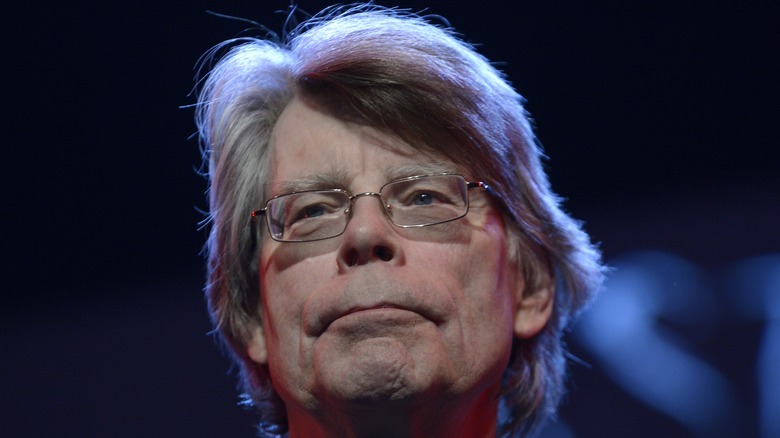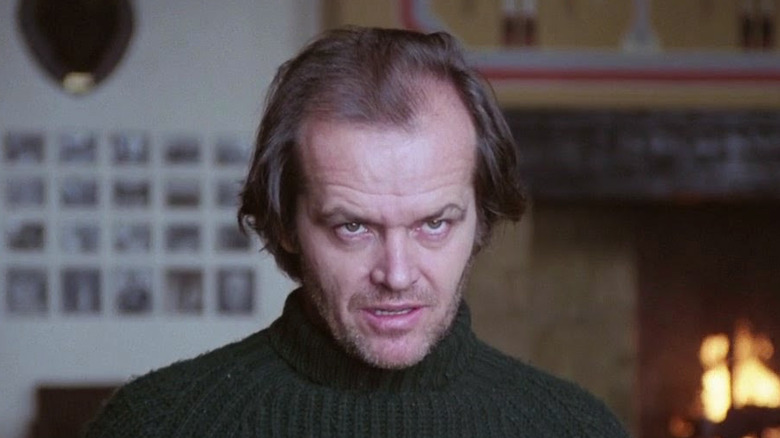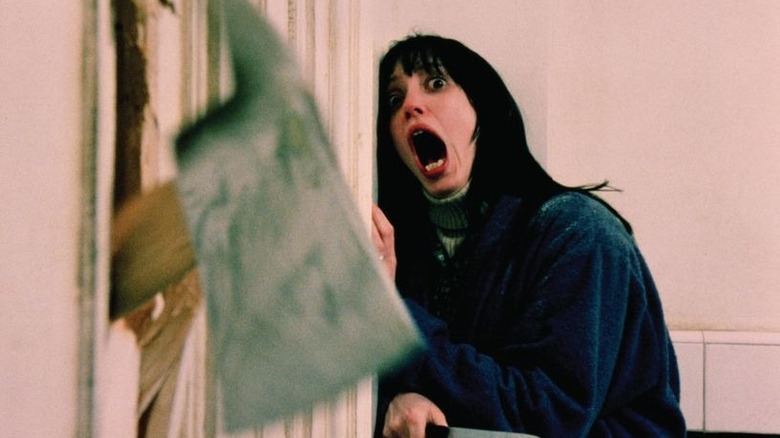How Stephen King Really Felt About The Shining
Stephen King, the master of horror, is also one of the most prolific writers alive. In just the last 10 years, King has published 14 books. And the famous Mainer shows no signs of slowing down. Not only has King dominated the literary world for the better part of 40 years, but many of his works have also been adapted into cinematic and television hits, beginning with Brian De Palma's classic "Carrie" in 1976. Several of King's works, like "Carrie," "IT," and "The Stand," have even received remakes in recent years.
Of the many King adaptations over the years, Stanley Kubrick's cinematic version of "The Shining" released in 1980 has had arguably the greatest impact on pop culture. The film has been parodied by "The Simpsons," alluded to by bands such as "Thirty Seconds to Mars" and "Slipknot," and referenced in "Breaking Bad," "Ready Player One," and even "Toy Story" (via Film and Furniture, Ultimate Guitar, and FlavorWire). Quotes like "Here's Johnny!" and "All work and no play makes Jack a dull boy" have gone on to become some of cinema's most famous lines. Given its iconic place in movie and pop history, King's opinion of the film may come as a surprise to many.
Stephen King thought Jack was too crazy
Fans of Stephen King have long known the author is no fan of Kubrick's "The Shining" because King has rarely shied away from vocalizing his disdain. He even wrote and produced a TV miniseries for ABC in 1997 in order to correct the many errors he believes Kubrick committed when adapting the novel. One of the first errors King wanted to fix in the remake was the role of Jack Torrance, which was played by Jack Nicholson in Kubrick's film.
In a 2014 interview with Rolling Stone, King repeated his early and frequent criticism of Nicholson's casting. As King noted, the Jack Torrance in the novel starts out as a sane and essentially decent guy who slowly, over the course of each page and chapter, loses his hold on reality and sanity. For the author, Jack Nicholson, who in 1975 won an Oscar for playing a mental patient in "One Flew Over the Cuckoo's Nest," lacked the ability to slowly lose his sanity. "When I saw the movie," King told Rolling Stone, "Jack was crazy from the first scene." King's clear protectiveness of the character is likely due to the fact that, of all the characters he's created, Jack Torrance was the most representative of King himself, who at the time of the book's publication in the 1970s was also a writer dealing with severe addictions (via BBC).
Stephen King didn't like how Wendy was portrayed
Stephen King also took exception with how Wendy Torrance, played by Shelley Duvall, was portrayed on screen. In an interview with the BBC, King said he believes Wendy in the film is one of the worst examples of misogyny in film. "She's basically just there to scream and be stupid, King said. "And that's not the woman I wrote about."
Beyond just the characters' on-screen depictions, King felt the movie overall was lacking. In a TCM documentary (via YouTube), King likened Kubrick's "The Shining" to a beautiful car that had no engine. When speaking to the BBC, King further explained that he believes the book has warmth, which invites the reader in, whereas Kubrick's version feels cold and distant, and the reader is only observing the characters as one might ants on an anthill. In the TCM documentary, King stated that the difference between the two versions' warmth and cold is best exemplified by how the end of "The Shining" differs from book to film. In King's novel, the Overlook Hotel burns. In Kubrick's film, it freezes.


